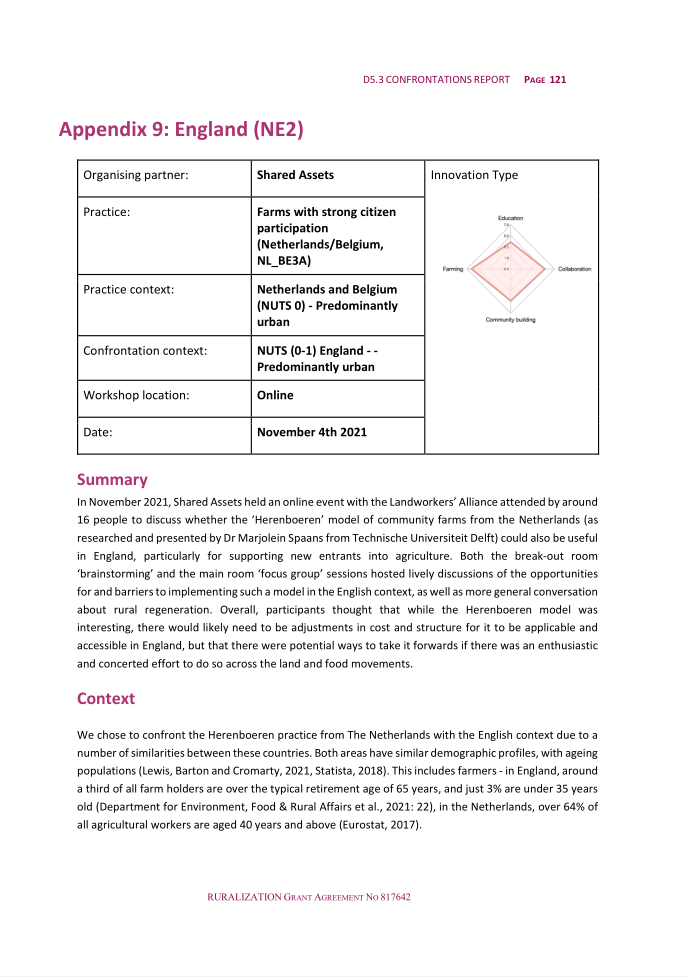Section title: England ( NUTS 0/1) (Confrontation report: NE2 – Community owned farms)
Highlights: In November 2021, Shared Assets held an online event with the Landworkers’ Alliance attended by around 16 people to discuss whether the ‘Herenboeren’ model of community farms from the Netherlands (as researched and presented by Dr Marjolein Spaans from Technische Universiteit Delft) could also be useful in England, particularly for supporting new entrants into agriculture. Both the break-out room ‘brainstorming’ and the main room ‘focus group’ sessions hosted lively discussions of the opportunities for and barriers to implementing such a model in the English context, as well as more general conversation about rural regeneration. Overall, participants thought that while the Herenboeren model was interesting, there would likely need to be adjustments in cost and structure for it to be applicable and accessible in England, but that there were potential ways to take it forwards if there was an enthusiastic and concerted effort to do so across the land and food movements.
Download
Category: Report
Country: United Kingdom
NUTS1 region: UKC North East (England), UKD North West (England), UKE Yorkshire and the Humber, UKF East Midlands (England), UKG West Midlands (England), UKH East of England, UKI London, UKJ South East (England), e UKK South West (England)
Type of region: Intermediate
RUR actor group: New Entrants
Local authority role: Providing funding e Implementing policy
Civil society organisation role: Providing funding, Providing infrastructure, Providing consultancy, Coordinating, e Lobbying
Single persons role: Providing funding, Coordinating, e Other
Politician role: Implementing policy
Rural development pathway: Multifunctional Agriculture, Bioeconomy, Agroecology, e Human Capital
Access to land pathway: Supporting farmers before accessing land, Organising the accessibility of farmland, Securing access to land for individual farmers, e Supporting farmers after access to land
Rural development topic adressed: Lack of jobs or quality jobs, Lack of economic diversity, Mobilisation of financial resources, Stakeholder empowerment, Infrastructure, Local food supply, Human capital, Educational opportunities (formal, informal, vocational), Economic equality, Other types of equalities (racial, social...), Cultural activities, Environmental conservation, e Access to land
Type of action: Collective action (e.g. farm collectives, cooperatives), Education & training, e Agroecology


